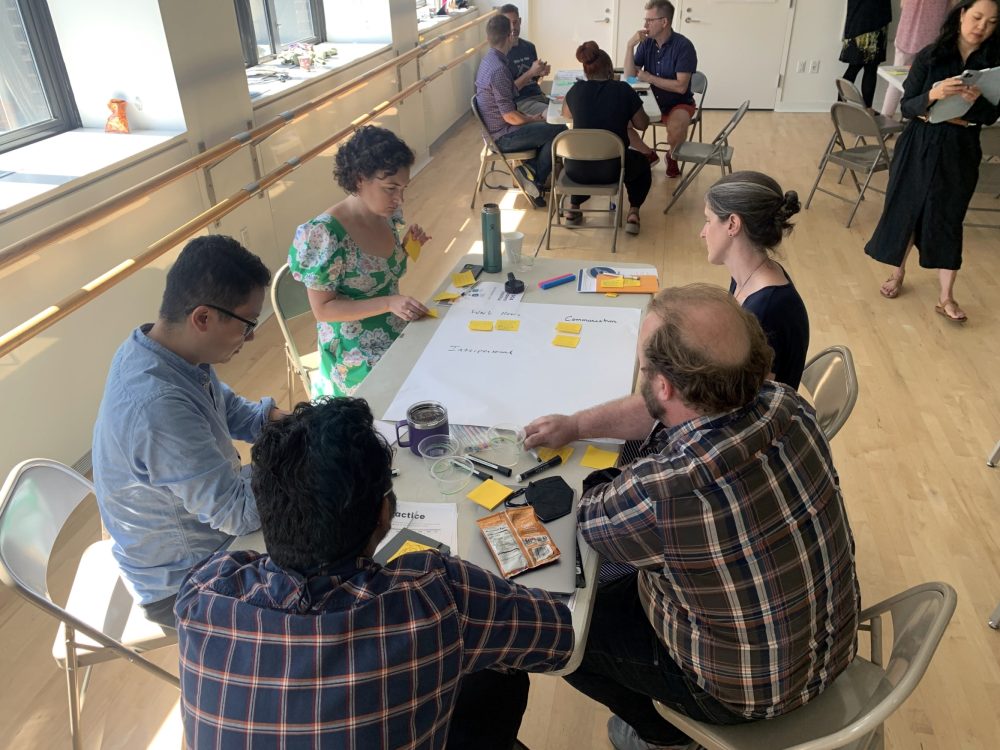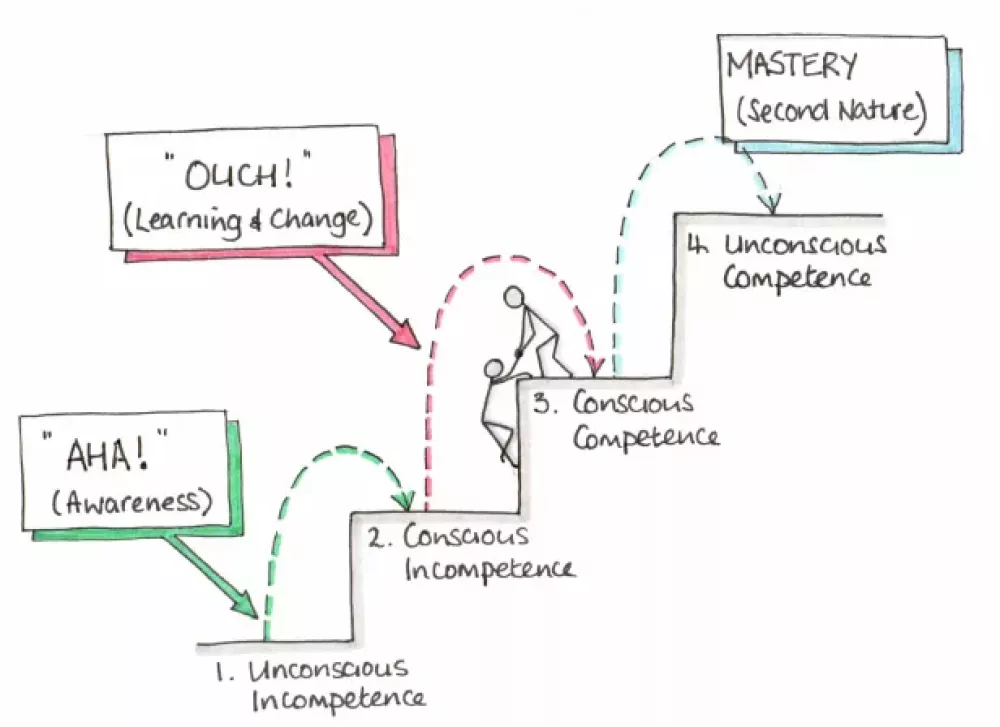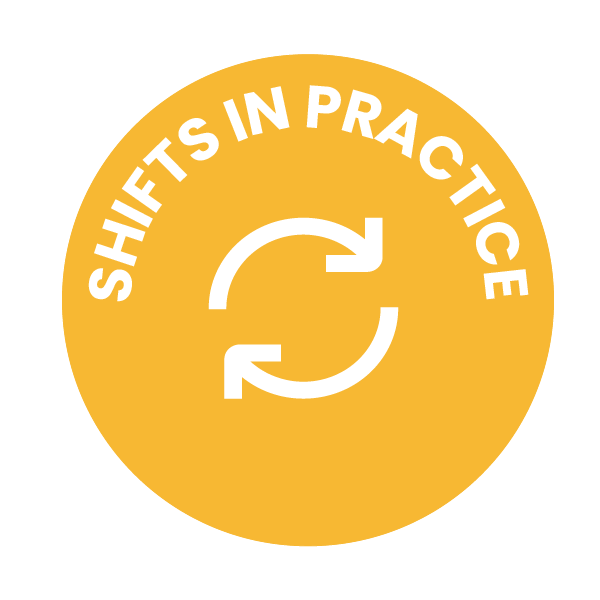How Do We Cultivate a Coaching Culture at Our Schools and Organizations?
Over the past four months, over 70 educators and school leaders have joined GOA’s cohort-based learning experience, Cultivating a Coaching Culture. The cohort learning experience is dedicated to supporting people inside schools who lead, coach and support others. Each monthly call focuses on teaching strategies for creating a coaching culture at your school that builds trust, encourages collaboration, and provides support to teachers.
We have to create workplaces where teachers feel supported, feel a strong sense of belonging, and feel a deep sense of trust. Any of us who work or have worked in schools know how important this is. Some schools are struggling to hire and/or retain teachers and there’s an ongoing mental health crisis exacerbated by two years of the pandemic.
GOA’s cohort-based learning experience has been organized into three main topics, and in each session, participants learn and practice specific protocols, tools, and strategies designed to help build a strong coaching culture. In this article, I’ll share a few strategies that you can enact or try if you lead teams of teachers or adults (or even students!) in a coaching or leadership capacity.
1) Cultivate Community
One strategy for cultivating a sense of community is to encourage people to share their stories. It can be easy to dismiss or not hear from others fully if we don’t know their stories. Expert coaches Jim Knight and Elena Aguilar have written and spoken on the power of storytelling--in both how we deliver information and in how we build safe spaces with others. Whether you’re leading student advisory groups or coaching teams or individuals, how can we create space for storytelling?
Storytelling is also a sustainable practice. Whether schools transition online or stay in person--cultures that share together benefit from that regular practice. Storytelling also provides us with an opportunity to create safe spaces and to practice curious mindsets. We get to know one another through coaching. And it models what we hope we’re empowering our students to do---own and share their stories.
Here’s one idea to try. In a meeting, conduct a storytelling interview with a colleague. Ask your colleague to think of another colleague or colleague who navigated these past years in ways you admire.
What traits did they demonstrate that you admired?
How did you see those traits in action?
You could also ask people to tell a story about themselves (which might be a tad harder!). Here are a few reflection questions for individuals, and you could ask people to share out if they felt comfortable.
What new skills have you gained in the last few years? (What can you do that you couldn’t do before?)
What is something in your role that’s really working?
What’s something new this year that you’re trying?
What do you hope is the impact of your work in June?

2) Cultivate Conversation
In coaching conversations, you may want to employ strategies such as storytelling, but there are other tools that can have in your toolkit to ensure you build psychological safety into any coaching culture.
Consider having a “third point.” A third point is usually a document such as a rubric, a reflection, or a self-evaluation tool that both parties can refer to in an impersonal way. The third point does not belong to either party and a third point helps establish psychological safety. We also think you could also substitute the phrase “third point” with “shared experiences.” This could include experiences such as: book studies, shared readings, shared learnings, podcasts, field trips with colleagues, and retreats. Consider how you are building opportunities for third points in cultivating a coaching culture at your school.
3) Cultivate Reflection
“The practice itself is all about learning, looking back on the day (without bias or regret) to contemplate your behavior and its consequences. It requires sitting with yourself, taking an honest moment to think about what transpired, what worked, what didn’t, what can be done, and what can’t. Reflection requires courage. It’s thoughtful and deliberate. Being at the ‘top of your game’ only comes when you extract from your past how to engage the future.” -James R. Bailey and Scheherazade Rehman
At GOA, we’ve found reflection to be one of the most helpful shifts an educator can make in their classrooms to support leading their own learning. Building in reflective practices in our schools, whether or not we label it a coaching strategy, can have immense impact on how we see our own learning, share our learning, and cultivate collaborative communities focused on professional growth.
At GOA, regular reflection routines with our students have been transformative. And yes, there are very deliberate semester pauses where students gather evidence for learning, but more than that--it’s the small ways that students are invited to reflect every day that brings about the most change.
In a coaching practice, you may likely already have reflection routines in place. Coaching cycles build in reflection. As we think about nurturing school communities that prioritize coaching cultures, think about ways reflection can be embedded in faculty meetings and in professional learning communities.
Want to reflect on reflecting? Here are a few prompts to get you started:
“Something I struggle with in reflection is…”
“An impact reflection makes on professional life is…”
“At my school, when it comes to reflection, we…”

Model attributed to Gordon Training International (1970s). Image Source
Coaches seek to build capacity in others to maximize learning processes. No matter our strengths, changing anything about our practice is really hard work. This model reminds us of the benefits of becoming aware of what we do and why we do certain things and leave us open to learning more and shifting our practice. We hope to see you in our upcoming professional learning offerings, including Cultivating a Coaching Culture Cohort.
For more, see:

This post is part of our Shifts in Practice series, which features educator voices from GOA’s network and seeks to share practical strategies that create shifts in educator practice. Are you an educator interested in submitting an article for potential publication on our Insights blog? If so, please read Contribute Your Voice to Share Shifts in Practice and follow the directions. We look forward to featuring your voice, insights, and ideas.
GOA serves students, teachers, and leaders and is comprised of member schools from around the world, including independent, international, charter, and public schools. Learn more about Becoming a Member. Our professional learning opportunities are open to any educator or school team. Follow us on LinkedIn and Twitter. To stay up to date on GOA learning opportunities, sign up for our newsletter.
